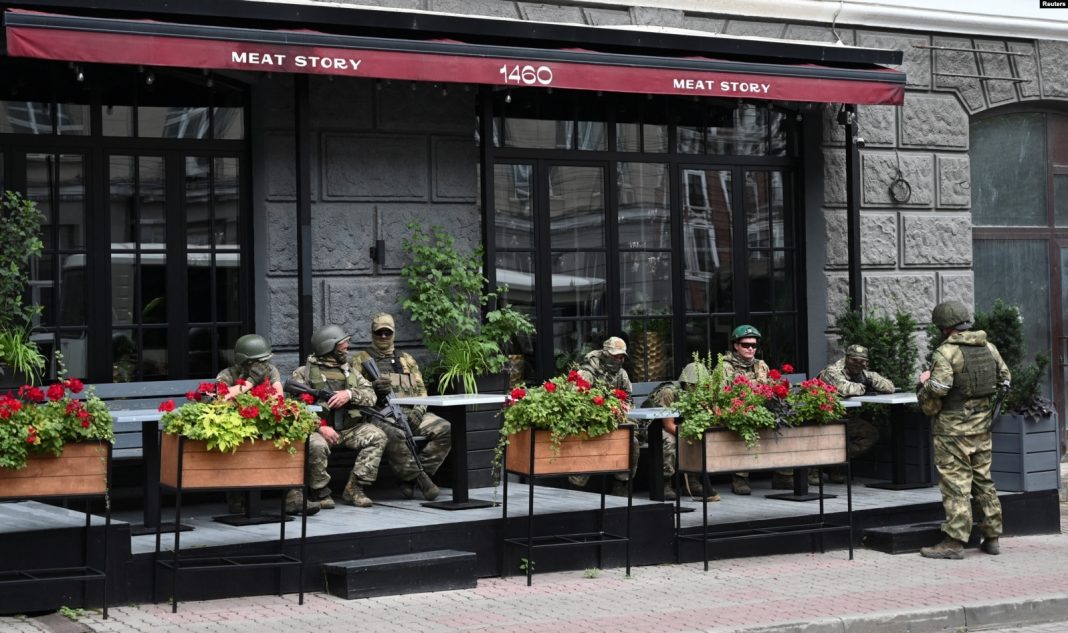The events of June 23-24 in Russia became an essential shock for the Russian Federation itself and the world, which was closely watching the actions of the Prigozhin militants. Russia, which a year ago claimed the role of one of the leading world hegemons, suddenly showed that in terms of the level of stability of the system, it came close to Sudan. Although many visible factors do not take into account many deep elements. Expert evaluations are mostly relatively superficial and do not stand up to criticism. Forecasts are all the more weak and do not consider political and psychological factors.
Several hypotheses can be formulated regarding the reasons for Prigozhin’s rebellion. It would be easiest to blame everything on the mental imbalance of the owner of “Wagner”. But let’s take into account several circumstances.
This Content Is Only For Subscribers
First, Prigozhin is far from an independent figure. He is absolutely dependent in his business on state structures, on state contracts and on loyalty to the regime. According to experts’ estimates, the value of Wagner PMC in one month can be from 80 to 150 million dollars, which will be paid in cash. Of course, all of Prigozhin’s political operations are under the strict control of the special services. Prigozhin does not have his own systematic business, so, surprisingly, he decided to cut off all ends with the authorities.
Secondly, recently Prigozhin was a person considered an element of the system of Kovalchuks and Sechin, one of the closest friends of Vladimir Putin. At the same time, Prigozhin had hostile relations with Sergei Shoigu and Valery Gerasimov and with the governor of St. Petersburg, Alexander Beglov (also a man of the Kovalchuk). That is, Prigozhin was never a non-systemic player but the flesh of the flesh of the established system.
Thirdly, “Wagner” are not Cossacks and not a band of thugs acting at their own discretion. Ascolta considers the following vertical in the decision-making system: organisationally, the PMCs in Russia are linked to the Special Operations Service, headed by the most mysterious general Valery Flustikov. Flyustikov himself (a native of the Luhansk Oblast with related ties in Western Ukraine) is formally the deputy chief of the Main Directorate of the General Staff of the Russian Armed Forces (Admiral Igor Kostyukov), but in reality, reports directly to Putin. He was advised by the governor of the Tula region, Oleksiy Dyumin, a former bodyguard of Putin, who himself headed the Special Operations Service for a while. Dyumin and Flustikov were responsible for the annexation of Crimea in 2014. All PMCs in Russia are tied to Flustikov.
Let’s move to hypotheses: What happened on June 23-24?
Version one. The “Kremlin towers” confrontation.
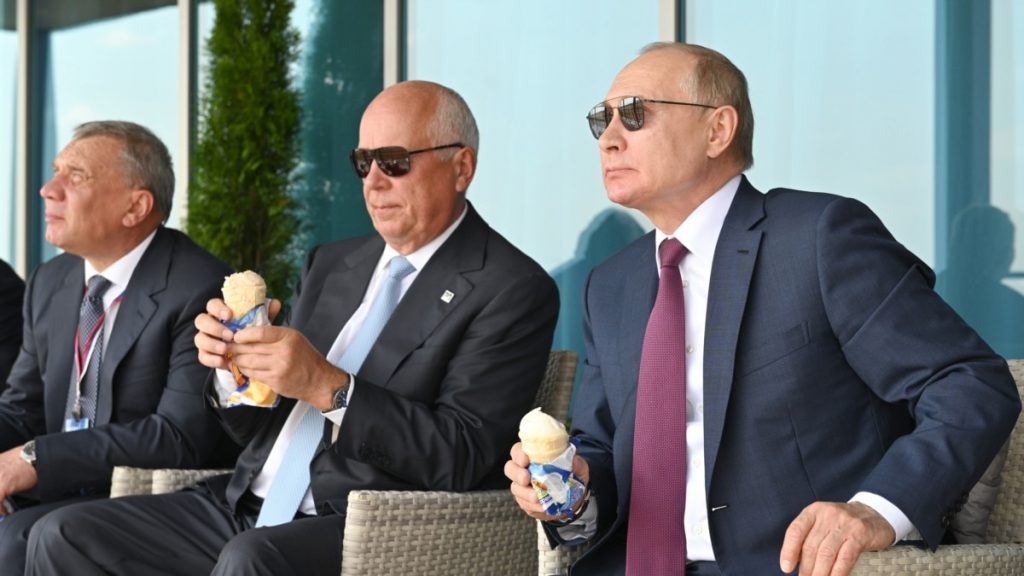
As Ascolta already wrote, Prigozhin was the closest to the Kovalchuks (one of the most powerful influential groups) and Sechyn. Both groups have conflicts with Serhiy Chemezov’s group and tensions with Patrushev’s group. A “young wolves” group stands out, including Dyumin, Flustikov, Prosecutor General Krasnov, and First Deputy Director of the FSB Korolev. In this case, it is tempting to consider Prigozhin’s speech as a carefully planned action by Kovalchuk or Sechin aimed at weakening political opponents within the government and, therefore, as the beginning of the struggle for power “after Putin.” Moreover, Shoigu has been getting closer to Chemezov lately. If Putin had followed Prigozhin’s demands, Shoigu’s resignation would have also weakened Chemezov.
According to this version, Prigozhin was used “blindly”, playing on his explosive character and predicting actions. First, they carefully deepened the contradictions between Prigozhin and the authorities, then fueled his pride and ambitions (including leading him to high political ratings), and then put into his head the idea of preparing a raider capture of “Wagner” by Shoigu’s men.
However: the risks are too high, and the result would be too unclear. In order to take such a step, one simply needs to know Putin’s psychology poorly. An officer of the KGB and the GRU, Putin would definitely not accept the terms of a “criminal” (which Prigozhin is in the eyes of Russian elites). That is, blackmail is not a method Putin can resort to. In addition: where are the guarantees that the hypothetical resignation of Shoigu led to the appointment of a person from the Kovalchuk group to the position of Minister of Defense? And who? And why? There was no direct conflict between the Kovalchuks and Shoigu. But the failure of the operation would have significantly affected the ambitions and positions of the Kovalchuks and Sechin. Just like Dyumin and Flustikov, who could have stopped the disgrace at any moment. But if there was no command to stop, they did not stop.
Version two. “Inoculation against a real conspiracy.”
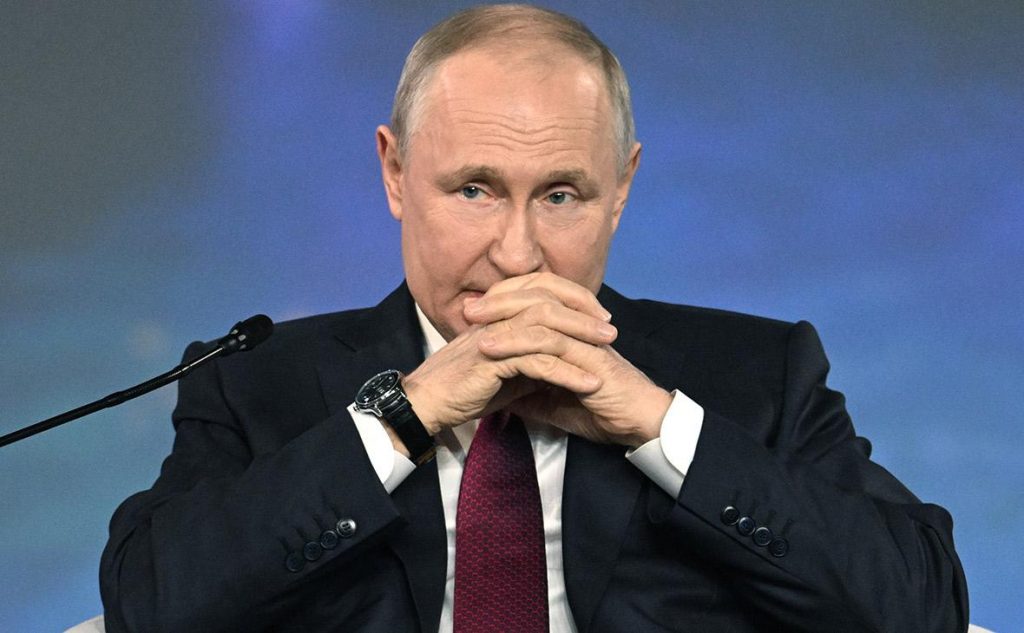
The version boils down to the fact that Putin knew about the actual preparation of a conspiracy to overthrow the president of the Russian Federation. There were many hints (in particular, a couple of days before Prigozhin’s action, the President of Ukraine, Volodymyr Zelensky, slandered that the Western world should find ways to eliminate Putin. There are two subversions in this plan.
A) Prigozhin tried to bribe Western special services and allegedly played a double game. Proponents of this theory say that Prigozhin was bought (there is even an absolutely fantastic version that the negotiations with Prigozhin were conducted by the head of Ukrainian military intelligence, General Budanov, and this supposedly explains his disappearance from the information radar). In this context, Prigozhin allegedly used the battles in Bakhmut to increase his political weight (there he is – the strategic plan and the need to protect Bakhmut!). And this was also part of the Western plan. And then Prigozhin was to march on Moscow in four columns, and the fifth would “classically” wait for him in the capital. But the problem is that the existence of this “fifth column” is not apparent. In addition, it is not a fact that Prigozhin would have received the support of the power structures and the army – within the army structures in Russia, the attitude towards the “Wagnerians” is ambiguous; they are considered mercenaries, protesting against their high salaries. The calculation that the 25,000-strong “army” of Prigozhin, when it appears near the walls of Moscow, will lead to the paralysis of the authorities or to chaos in society, to turmoil and civil war, betrays the authors of this version as people who are entirely ignorant of the nature of Russia and its government.
B) The coup was not prepared by the Prigozhynites but by the military. Perhaps with the aim of bringing Shoigu or one of the generals to power. In his televised address, Putin never once mentioned Prigozhin and “Wagner” but spoke of “traitors”. In this case, Prigozhin’s speech is an attempt to prevent the “amusing” coup of today’s coup possibility. A few days before Prigozhin’s action, Putin broke the existing parity within the command of the Armed Forces for the first time since the war. He spoke to graduates of military schools. It would seem like a trifle, but it is worth noting that military schools and personnel policy are the influence areas of the group of generals Popkov and Goremykin, whose significant function within the Ministry of Defense is those who “look after the army from the FSB.” As experience has shown, gestures towards this tandem have always turned into surprises for Putin. He already had a lot of questions for Shoyg and Gerasimov, as well as for the “parquet generals”. Therefore, new gestures did not promise anything good. According to this version, Shoigu and Gerasimov themselves were preparing for the coup and the arrest of Putin, but Prigozhin confused their cards.
We can only assess this version’s validity or weakness by the intensity of personnel purges at the top of the army and related political and economic groups. Will 1937 be the new year after the “Prygozhin rebellion” – probably, it is not entirely correct to ask the question this way. But there will be certain conclusions (including personnel and legal ones).
Version three. “Prygozhin’s Riot” as a pre-sale promotion.
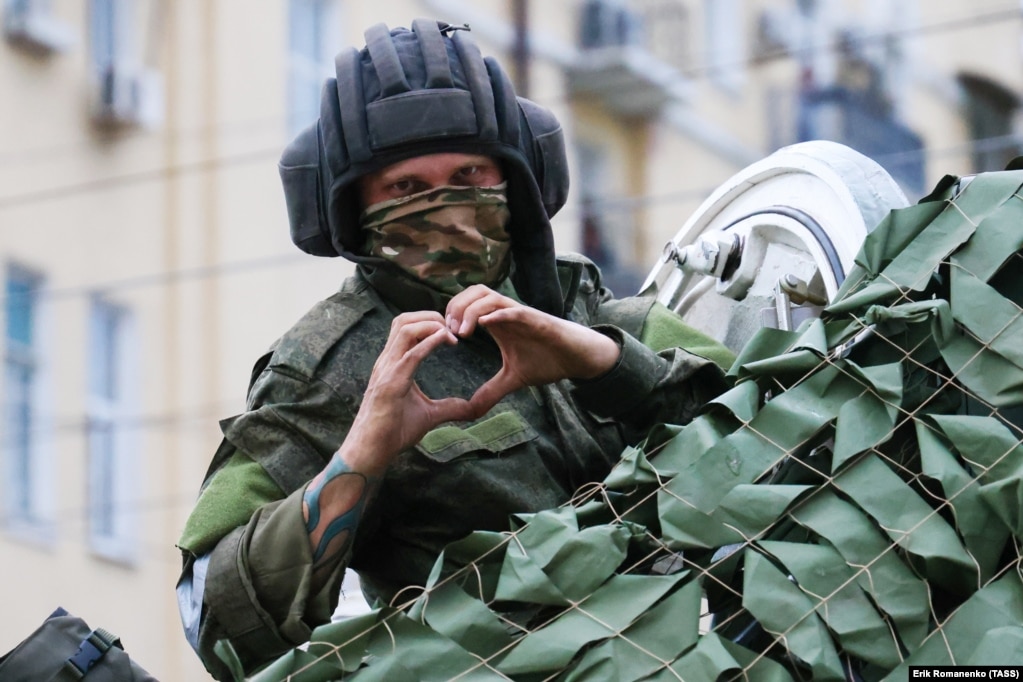
According to this action, Prigozhin was offered to sell PMC “Wagner”. A complicated scheme with elements of the uprising was needed precisely so that ordinary people did not get the impression that the war was turned into a kind of business, and Prigozhin’s associates (the same Utkin) were not forced to share with them.
However, this version seems too complicated, and the scheme is more worthy of an adventure novel than a real scenario. In any case, the shares of “Wagner” will now grow: the track record of Wagnerites now includes participation in a rebellion in Russia – not just 1-2 successful coups in African countries. Even if “Wagner” is disbanded, Russia will be able to offer “for sale” PMK, emphasising the fact that “2/3 of it consists of former “Wagners”. The profit is apparent.
Version four. Secret redeployment.
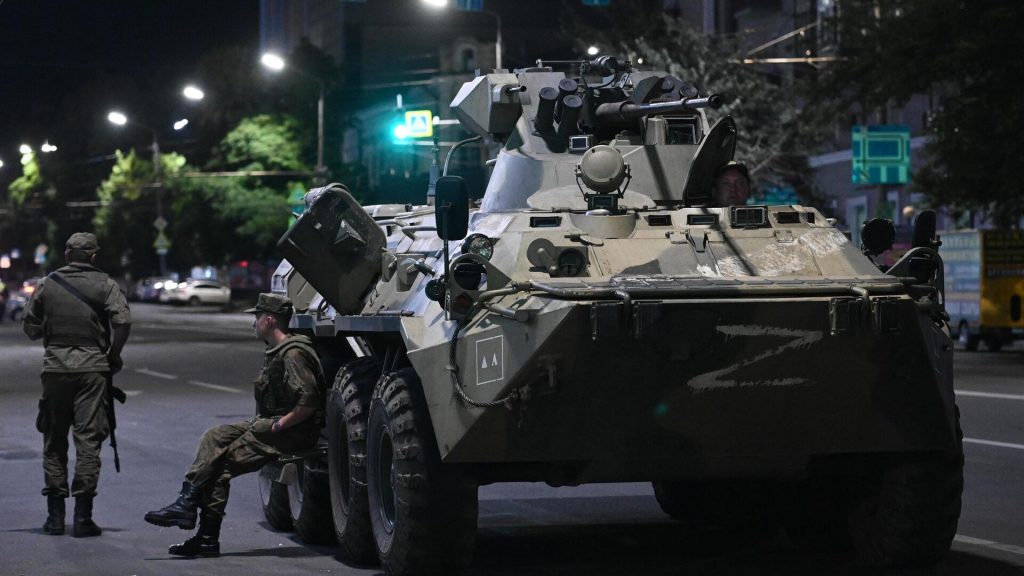
Proponents of this version are sure that under the guise of a mutiny, Russia transferred its forces to the borders of Ukraine, redeployed troops and is now more than ever ready to strike at the rear of the Armed Forces – if only Ukraine starts its counteroffensive in the south.
Again, the version is too complicated and heavy.
In the event context, paying attention to several points is necessary.
1. Those who believe that Putin seriously lost due to the Prigozhin rebellion are mistaken. Russia is a state society in which the principles and rules characteristic of the West do not apply. Last year, the same experts spoke of Xi Jinping’s “image losses” and “weakness” due to the lack of a radical response to Nancy Pelosi’s visit to Taiwan. Where are these image losses? What could be Putin’s defeat? He has no opposition or competitors who could take advantage of the situation and increase his ratings. He is not in danger of losing power. He has long been persona non grata in the West and will certainly not pay attention to a series of statements by the Western media about his weakness. In the eyes of his fellow citizens, he prevented civil war, bloodshed and destruction. He showed the stability of his system – not a single official, not a single oligarch from his inner circle left him. Governors, generals, and ministers did not side with the rebels. The uprising did not spread to other regions or find support among the masses. Moreover, Putin has shown that in Russian conditions, his word is more important than the law (despite the case initiated by the Prosecutor General’s Office, Prigozhin left Russia unimpeded under the president’s word of honour).
2. After last year’s flight from the country of Konstantin Holoshchapov and after Yevhen Prigozhin’s démarche, Putin has a full moral right to refuse the services of those with whom he came to power. Argument: “I was betrayed by the friends of my youth; I can no longer trust anyone.” It seems the time for a change of elites is coming in Russia. Instead of “aristocrats”, who have freedoms and privileges by right of the origin, “nobles” will come, who will receive these privileges for faithful service. Over the past decade, Putin has raised and prepared a group of “nobles” or “young wolves” to enter active political life, and at the gubernatorial level, he has already led “youth” born in the 70s and 80s to manage the region. In fact, Putin can use this situation in the same way that Ivan IV the Terrible used Kurbsky’s betrayal and subsequent flight to Lithuania (in fact, to Belarus itself) to replace the boyar aristocrats with oprichnik nobles.
3. An important moment: Oleksandr Lukashenko enters Russian political life. If until now he was the closest ally, the head of the state most friendly to Russia, now he is precisely a player in Russian domestic schedules. He “dissolved” the turmoil and helped Putin resolve the situation with the rebellion. And, most likely, the integration of Lukashenka into the Russian elite and the Russian establishment will now go much faster. It is quite possible that by the end of the year, we will see the final design of the confederation and the dualistic Russian-Belarusian model of statehood – with the fact that we cannot rule out the moment when Putin nominates Lukashenka in his place as the nominal head of the “union state”. At the same time, Putin himself will play the modest role of a “mentor”, equipping his “successor” with people loyal to him (the option of Simeon Bekbulatovich or Dmitry Medvedev). However, at the same time, everyone will perfectly understand who is the country’s real leader. The version seems fantastic only at first glance, but, in fact, it is not devoid of internal logic: Lukashenko is a person who can arrange all the towers of the Kremlin since she is not tied to any of them and is a “person on the side”. In fact, allowing the “Prygozhin rebellion” is the same springboard for Lukashenko as suppressing the “Rokhlin rebellion” is a springboard for Putin.
4. The current situation in Russia does not bode well for Ukraine. She failed to seize the moment. Ukraine did not even send a Russian volunteer battalion to the Belgorod and Kursk regions, which shows that Ukraine does not manage this asset; most likely, it has foreign supervision. Even the formal participation of the RDC in Prigozhin’s rebellion could lead to significant changes – negotiations involving Lukashenka would be disrupted, and Prigozhin would be finally discredited. And so it turns out that in the eyes of the common person in Russia, everything that happened is just a misunderstanding, “sweet people swear – they are just having fun.” And the failure to use the RDK in this situation is an argument in favour of the fact that the British special services were caught off guard and could not react in time. Everything happened so lightning fast that Western special services did not have time to orient themselves.
5. Another disadvantage for Ukraine is that after possible purges in the army, people not guided by sentiments and “Russian mayhem” in decision-making may come to the Ministry of Defense and the General Staff. Cleaning up the “fat cats” and “plywood marshals” can lead to a strengthening of the position of the Russian Armed Forces, greater organisation and coordination of the enemy’s actions. Generals who are preparing the army for the past war, but those who have already understood the specifics of the current war, can come to manage the General Staff and the Ministry of Defense. And this is exceptionally disadvantageous from the point of view of Ukraine. German generals in the Second World War also initially prepared for war with Tymoshenko, Budyonny and Voroshilov (and even earlier – with Tukhachevsky and Blucher) and had to fight with Zhukov, Konev, Vasylevsky, Rokosovsky.

